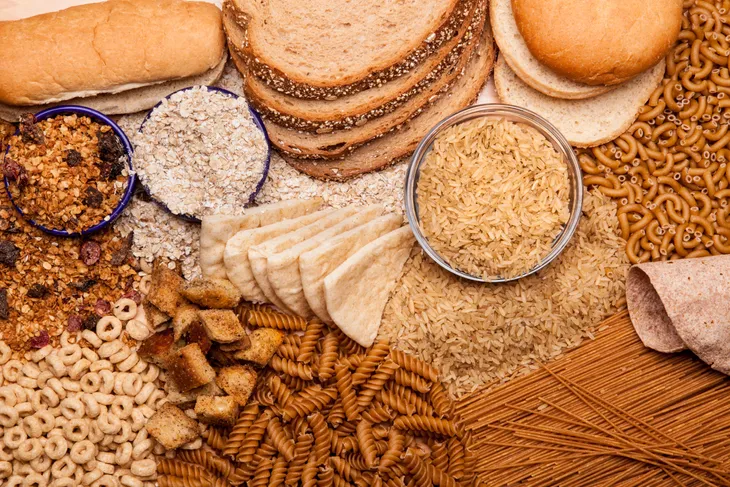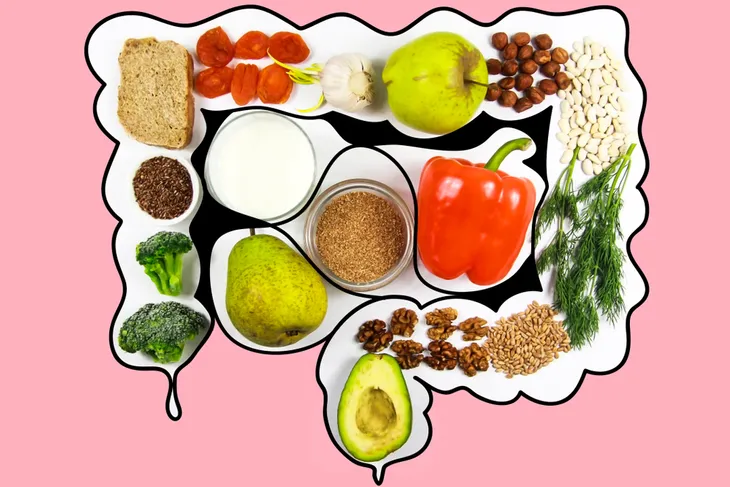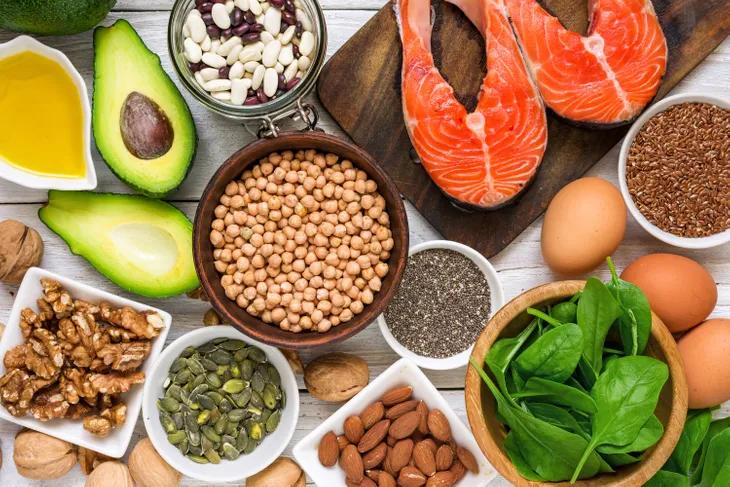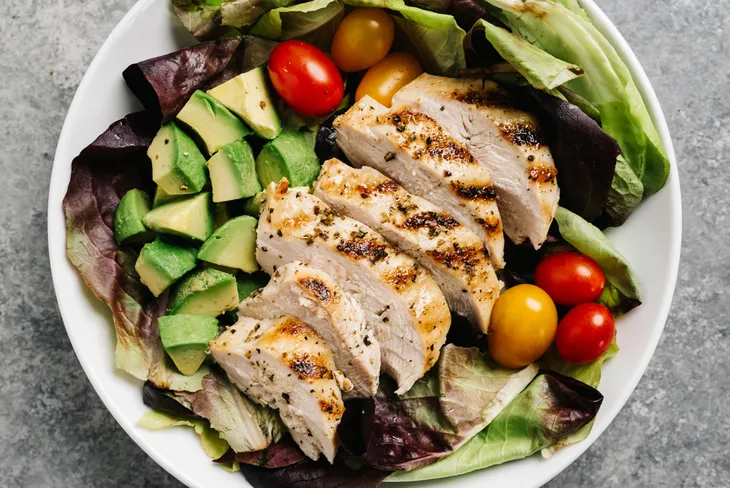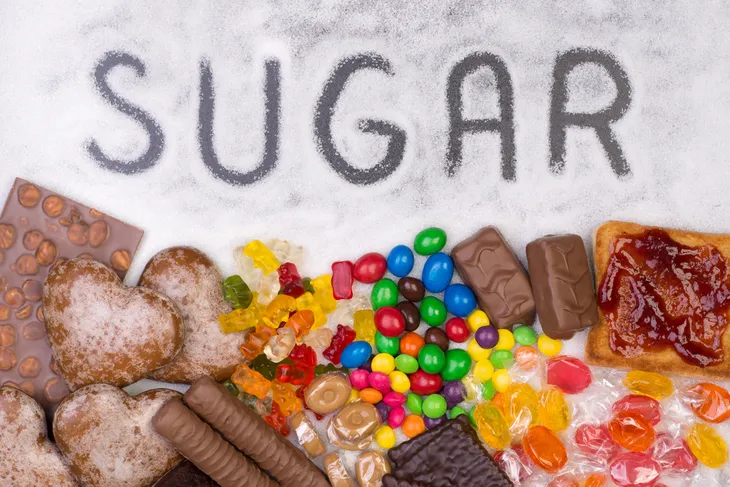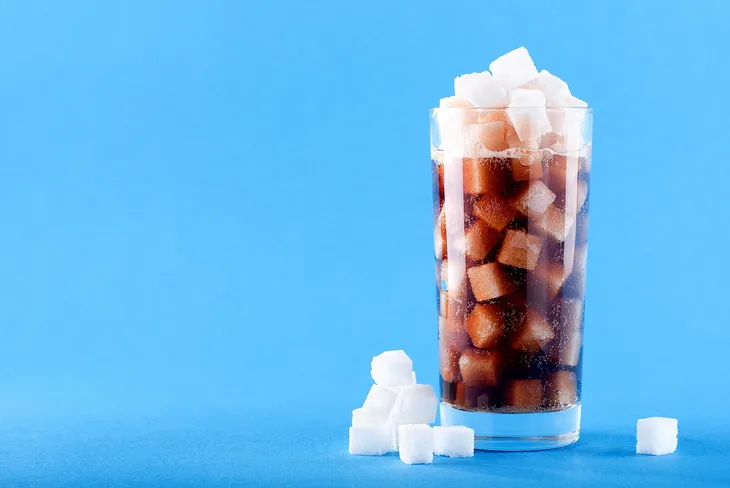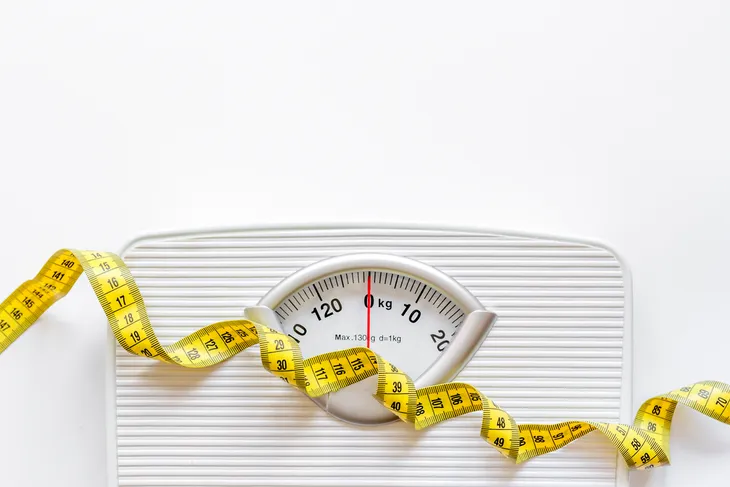- While you may be tempted to try a quick fix or fad diet, the key to fat loss is a balance of a healthy diet, a calorie deficit, and exercise.
- Managing your stress and getting plenty of good quality sleep is also important for shedding fat.
- Fat loss doesn’t happen overnight. So, if you’re not seeing results right away, remind yourself that consistency is key.
Getting rid of stubborn body fat can be a challenge. While we would all love a magical and quick solution, the fact is, fat loss requires motivation, hard work, and tons of patience. The saying “consistency is key” really holds a lot of truth too. In order to see results, you’ll need to be consistent with your efforts.
So ditch the fad diets and the magical fat-burning pills, shakes, or gimmicks and learn how to burn fat the right way. If you’re ready to take charge of your health, here are 13 effective ways to burn fat!
Manage Stress
Diet and exercise are an important part of fat loss (which we will get into later), but many other factors can play a role in weight gain or what prevents you from losing the weight you want. One of those factors is stress.
While everyone deals with stress from time to time, chronic stress may make you gain fat because it can trigger your adrenal gland to produce cortisol, explains Healthline. The source also notes, “women who already have a large waist tend to produce more cortisol in response to stress.” And more cortisol leads to more fat gain and the vicious cycle continues.
To encourage fat loss, you’ll need to manage your stress. Some stress-relieving activities include breathing exercises, meditation, yoga or gentle stretching, walking, reading, and journaling. Find something that relaxes you and practice it daily.
Get Enough Sleep
Don’t underestimate the power of sleep. While you might be tempted to stay up an extra hour to binge-watch your favorite show, your lack of sleep could be causing fat gain.
Healthline references a 16-year study that analyzed the sleeping habits of 68,000 women. The research shows that the women who slept 5-hours nightly had a greater chance of weight gain compared to those who slept 7-hours or more. Furthermore, if you suffer from sleep apnea (a condition that causes you to stop breathing occasionally during the night), you may also be at risk of gaining more fat.
To encourage fat loss, make sure you get enough sleep every day. The Sleep Foundation says you should aim for around 7 to 9-hours of sleep every night. And finally, if you suspect you may have a sleeping disorder, talk to your doctor.
Consider Whole Grains
Carbohydrates don’t have to be evil. A lot of people restrict carbs when trying to lose weight, but you don’t have to cut them out of your diet completely. When creating a healthy meal plan consider switching to whole grains and reducing your intake of refined carbs. This is because refined grains are stripped of their fiber and nutrients.
Furthermore, refined carbs can cause your blood sugar to spike and crash, leading to increased hunger. In contrast, Healthline explains, “diets high in whole grains are tied to a lower body mass index (BMI) and body weight, plus a smaller waist circumference.” A few easy swaps you can make are white bread for whole wheat bread, pasta for quinoa, and consider oats instead of refined breakfast cereals.
Increase Your Fiber Intake
Fiber is an essential nutrient that helps your body regulate its use of sugars. In turn, this helps keep your blood sugar and hunger in check, explains Harvard School of Public Health. There are two types of fiber: insoluble and soluble — both of which play an important role in fat loss.
For starters, insoluble fiber doesn’t dissolve in water and helps food move through your digestive system, keeping you regular. Soluble fiber, on the other hand, dissolves in water and moves through your digestive system more slowly, helping you feel full for longer. Both types of fiber can play a role in fat loss. In fact, this study found that fiber intake promotes weight loss and dietary adherence.
Adults need at least 20 to 30-grams of fiber per day but unfortunately, the average American is only consuming about 15-grams. To get more fiber in your diet consider fiber-rich foods like apples, blueberries, oatmeal, brown rice, whole grain bread, legumes, and carrots.
Don’t Fear Healthy Fats
Although you may be hesitant to eat fat when trying to burn fat, Healthline says “increasing your intake of healthy fats may prevent weight gain.” That said, not all fat is created equal. Consuming too much saturated fats and trans fats can negatively impact your health by raising cholesterol levels and increasing your risk for heart disease. These types of fats are commonly found in fried and processed foods.
The key for fat burning is to focus on eating healthy fats such as olive oil, coconut oil, avocado, salmon, nuts, and seeds. This study found that a “diet enriched with olive oil can be an important weight control strategy in people without previous cardiovascular events.” It’s worth noting, fats can be very high in calories, so it’s still important to eat them in moderation.
Increase Your Protein
Protein is an important nutrient that helps your body repair muscles and bones, and it helps make hormones and enzymes. It can also play a vital role in burning fat. Healthline explains a high protein intake may help boost your metabolism and decrease your appetite.
The source also says protein changes the levels of a few weight regulating hormones. “A higher protein intake actually increases levels of the satiety (appetite-reducing) hormones GLP-1, peptide YY and cholecystokinin, while reducing your levels of the hunger hormone ghrelin,” explains the source. If you want to burn fat, be sure to add good sources of protein with every meal such as eggs, meat, fish, and legumes.
Decrease Your Sugar Intake
It’s no secret that sugar tastes good but that daily candy bar or other sugar-loaded treat habits you’ve got could be doing a lot more harm than good. Health says these habits can lead to excess fat, especially around the abdominal area.
Over time, sugar also encourages visceral fat to accumulate around your middle which are fat cells deep in the abdomen. Visceral fat can be dangerous because it generates troublemaking hormones that can cause inflammation which can contribute to serious health conditions like heart disease and cancer. So another effective way to burn fat is to cut back on your sugar intake.
Be on the lookout for other hidden names for sugar such as corn syrup, raw sugar, cane sugar, high-fructose corn syrup, brown rice syrup, agave, coconut palm sugar, barley malt syrup, and more.
Watch Out for Sugar in Beverages
Sugar is in many food products but it’s also in tons of beverages too. Watch out for sugar in beverages such as soda, juice, sweet tea, alcoholic mixers, and even your favorite drinks from your local coffee shop.
Healthline explains, “Sugar-sweetened beverages are loaded with liquid fructose, which can make you gain belly fat.” In fact, the source cites a 10-week study that found individuals who consumed high fructose beverages gained significant abdominal fat. The source also says sugar-loaded beverages might be even worse than high-sugar foods. This may be because your brain doesn’t process liquid calories the same way as solid calories. As a result, you’re more likely to consume more liquid calories which can lead to more fat gain.
Track Your Food Intake
From increasing your fiber and protein intake to cutting back on sugar, there is a lot to remember when it comes to eating a healthy diet. Tracking your food intake is one way to know exactly what you’re putting in your body, and to hold yourself accountable. By tracking what you eat, you can also track how many calories you’re eating too. Healthline says “consuming fewer calories than your body needs for weight maintenance is key.”
Track your intake with a food journal or use a food tracker app. Another benefit of some tracker apps, is they often help you track your macro and micronutrients too, as well as your exercise intake, all of which plays a role in losing fat.
Strength Training
Fitness also plays a role in fat loss. One form of physical activity you should consider is strength training, a type of exercise that involves your muscles contracting against resistance. Lifting weights can help increase both your muscle mass and strength.
Building muscle for fat loss is key because muscle burns more calories at rest. Healthline says this is why strength training is important for increasing your resting metabolism. The source also notes that research suggests you’ll burn more calories in the hours after a strength training session, especially compared to cardio. If you’re not sure where to start, you can start using gym equipment, try bodyweight exercises, or hire a personal trainer to give you a few pointers.
Include Cardio
Another important type of exercise for fat loss is cardio (also called aerobic exercise). Cardio specifically trains the heart and lungs, explains Healthline. Some great examples of aerobic exercises include walking, running, cycling, and swimming.
Medical News Today says the amount of cardio you need to do to lose fat will vary from one person to the next. However, the CDC suggests engaging in 150-minutes of moderate-intensity aerobic activity (such as brisk walking) or 75-minutes of vigorous-intensity aerobic activity (such as running) per week. You could also try a combination of the two.
High-Intensity Interval Training May Also Be Effective
High-intensity interval training, also known as HIIT, is another great type of exercise for fat loss. HIIT keeps your heart rate elevated by combining quick bursts of activity with short recovery periods.
Healthline says doing HIIT several times per week may reduce body fat and waist circumference. Even better, the source notes that HIIT requires “40% less training time commitment than moderate-intensity continuous training, which includes activities like running, rowing, or using an elliptical.” There are tons of free online HIIT workouts to help you get started.
 Source: Shutterstock
Source: ShutterstockThe Importance of Consistency
If you want to lose fat sustainably, be sure to steer clear of fad crash diets. These will only do more harm than good in the long run. The key is to find a good balance of a healthy diet, a calorie deficit, and exercise. It’s also incredibly important to be consistent.
Fat loss doesn’t happen overnight, and it doesn’t happen in one week either. So, if you’re not seeing results right away, remind yourself that consistency is key. If you stick to a healthy eating plan and an active lifestyle, fat loss will follow.



